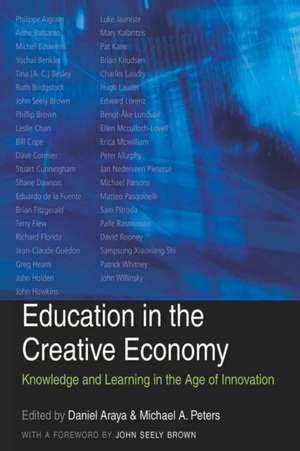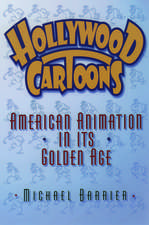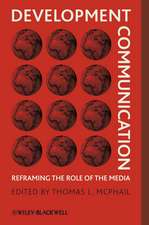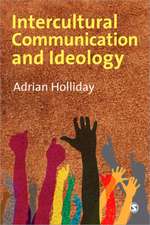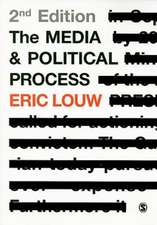Education in the Creative Economy
Editat de Daniel Araya, Michael A. Petersen Limba Engleză Hardback – 15 sep 2010
| Toate formatele și edițiile | Preț | Express |
|---|---|---|
| Paperback (1) | 393.89 lei 38-44 zile | |
| Peter Lang Gmbh, Internationaler Verlag Der W – 7 sep 2010 | 393.89 lei 38-44 zile | |
| Hardback (1) | 1150.07 lei 38-44 zile | |
| Peter Lang Gmbh, Internationaler Verlag Der W – 15 sep 2010 | 1150.07 lei 38-44 zile |
Preț: 1150.07 lei
Preț vechi: 1263.81 lei
-9% Nou
Puncte Express: 1725
Preț estimativ în valută:
220.06€ • 229.78$ • 181.72£
220.06€ • 229.78$ • 181.72£
Carte tipărită la comandă
Livrare economică 12-18 aprilie
Preluare comenzi: 021 569.72.76
Specificații
ISBN-13: 9781433107450
ISBN-10: 1433107457
Pagini: 675
Ilustrații: num. ill., tables and graphs
Dimensiuni: 154 x 231 x 48 mm
Greutate: 0 kg
Ediția:2
Editura: Peter Lang Gmbh, Internationaler Verlag Der W
ISBN-10: 1433107457
Pagini: 675
Ilustrații: num. ill., tables and graphs
Dimensiuni: 154 x 231 x 48 mm
Greutate: 0 kg
Ediția:2
Editura: Peter Lang Gmbh, Internationaler Verlag Der W
Notă biografică
Daniel Araya is a doctoral candidate in Educational Policy Studies at the University of Illinois at Urbana-Champaign. He has published widely on subjects related to the knowledge economy and peer-to-peer collaboration, and is currently editing two books exploring the socioeconomic impact of digital technologies. He has worked with the National Center for Supercomputing Applications (NCSA) and the UIUC Global Studies in Education program. Michael A. Peters is Professor of Education at the University of Illinois at Urbana- Champaign. He is the executive editor of Educational Philosophy and Theory and editor of two international e-journals, Policy Futures in Education and E-Learning, and sits on the editorial board of over fifteen international journals. He has written over thirty-five books and three hundred articles and chapters.
Cuprins
Contents: John Seely Brown: Foreword: Education in the Creative Economy ¿ Michael A. Peters/Daniel Araya: Introduction: The Creative Economy: Origins, Categories, and Concepts ¿ Daniel Araya: Educational Policy in the Creative Economy ¿ Stuart Cunningham/Luke Jaaniste: The Policy Journey Toward Education for the Creative Economy ¿ Richard Florida/Brian Knudsen/Kevin Stolarick: The University and the Creative Economy ¿ Terry Flew: Creative Clusters and Universities: The Cluster Concept in Economics and Geography ¿ Greg Hearn/Ruth Bridgstock: Education for the Creative Economy: Innovation, Transdisciplinarity, and Networks ¿ Phillip Brow/Hugh Lauder: The Knowledge Economy, Knowledge Capitalism, Creativity, and Globalization ¿ Sam Pitroda: The National Knowledge Commission: Education and the Future of India ¿ Bengt-Åke Lundvall/Palle Rasmussen/Edward Lorenz: Education in the Learning Economy: A European Perspective ¿ David Rooney: Creatively Wise Education in a Knowledge Economy ¿ Michael A. Peters: Creativity, Openness, and User-Generated Cultures ¿ Philippe Aigrain/Leslie Chan/Jean-Claude Guédon/John Willinsky/Yochai Benkler: Symposium on The Wealth of Networks ¿ John Howkins: Catalyst ¿ Brian Fitzgerald/Sampsung Xiaoxiang Shi: Reconceptualising Copyright Law for the Creative Economy through the Lens of Evolutionary Economics¿ ¿ Matteo Pasquinelli: The Ideology of Free Culture and the Grammar of Sabotage ¿ Michel Bauwens: Toward a P2P Economy ¿ Peter Murphy: Creative Economies and Research Universities ¿ Charles Landry: The Creative Ecology of the Creative City: A Summary ¿ Jan Nederveen Pieterse: Innovate, Innovate! Here Comes American Rebirth ¿ Anne Balsamo: Working the Paradigm Shift: Educating the Technological Imagination ¿ Patrick Whitney: Learning in the Creative Economy ¿ Erica McWilliam/Jennifer Pei-Ling Tan/Shane Dawson: Creativity, Digitality, and Twenty-First-Century Schooling ¿ Tina (A. C.) Besley: Digitized Youth: Constructing Identities in the Creative Knowledge Economy ¿ Dave Cormier: Community as Curriculum ¿ Ellen McCulloch-Lovell: The Creative Campus: Practicing What We Teach ¿ Michael Parsons: Three Versions of Creativity in Education and Art ¿ Eduardo de la Fuente: Beyond the Academic «Iron Cage»: Education and the Spirit of Aesthetic Capitalism ¿ John Holden: Democratic Culture: Opening Up the Arts to Everyone ¿ Bill Cope/Mary Kalantzis: by Design ¿ Torill Strand: Beyond Education: Metaphors on Creativity and Workplace Learning ¿ Pat Kane: Afterword: Play, the Net, and the Perils of Educating for a Creative Economy.
Recenzii
'Education in the Creative Economy' is a fabulous collection of essays by some of the most penetrating and insightful scholars now mapping the field of creative knowledge economy studies. The book's principal merit resides in the thoughtfulness of each of the contributions to this timely edited volume, and the probing connections and challenging questions that these scholars pose to the status quo organization of knowledge in schooling and the university today. This volume insistently urges educators to reconsider the ways we think about education and pedagogy and the ways we might profit from the cutting-edge developments in the domain of the creative industries. This book will be an indispensable text for general readers, students and scholars interested in the study of the creative knowledge economy for years to come. (Cameron McCarthy, Professor of Educational Policy Studies, University of Illinois at Urbana-Champaign) At a time when new media and a host of new technologies are reshaping every aspect of life and society, there has been a lack of analyses capable of integrating and critically engaging these new forces. We not only live in an age of constant information flows and technological breakthroughs, but we also inhabit a society in which individual and social agency are under attack. Innovation is stripped from matters of equity and social costs and the results look less like a step forward for humanity than a step backwards into what Bertolt Brecht once called 'dark times.' Technologies and their diverse modes of knowledge do not merely overwhelm us, they increasingly erase matters of equity, justice, and social responsibility. What 'Education in the Creative Economy' does brilliantly is to remind us that learning is not merely the precondition for innovation, technological progress, and the over-hyped rise of an information economy, it is also the precondition for imagination, civic courage, and collective struggles that expand and deepen the process of democratization. 'Education in the Creative Economy' is a breakthrough book that critically engages a range of complex issues regarding the brave new world in which new technologies and knowledge production redefine the nature of the present. But it does more. In breathtaking fashion it dresses cogently and with great insight what this new regime of production, consumption, and learning might mean for a future in which democratic values, social justice, and political agency once again matter. (Henry Giroux, Global Television Network Chair in the Department of English and Cultural Studies, McMaster University) A brilliant collection in substance, scale and variety. It is like a website in print. Michael Peters and Daniel Araya have done us a fine service in assembling all of this material in a single volume - one that is destined to be first portal on education and creativity for some time to come. The book is a lattice of diverse messages and interpretations, but all of the contributors share an engaged and enthusiastic realism, in which 'culture' and 'economy' are no longer separated into different boxes but are continually used to interrogate each other. (Simon Marginson, Professor of Higher Education, Centre for the Study of Higher Education, University of Melbourne) This book brings together multiple perspectives on and creates a compelling argument for the role of creativity in economic growth and development. It examines how an eclectic mix of technology, talent and educational policy are vital for innovation and economic growth, and argues the need for new learning paradigms and for better links across academic disciplines and between universities and business. Increased and accelerating globalization in all areas of the economy has never made creativity more important to innovation than now, so it is good to see a book that tackles the importance of creativity from a range of perspectives and from across the world. The book starts by defining creativity in
